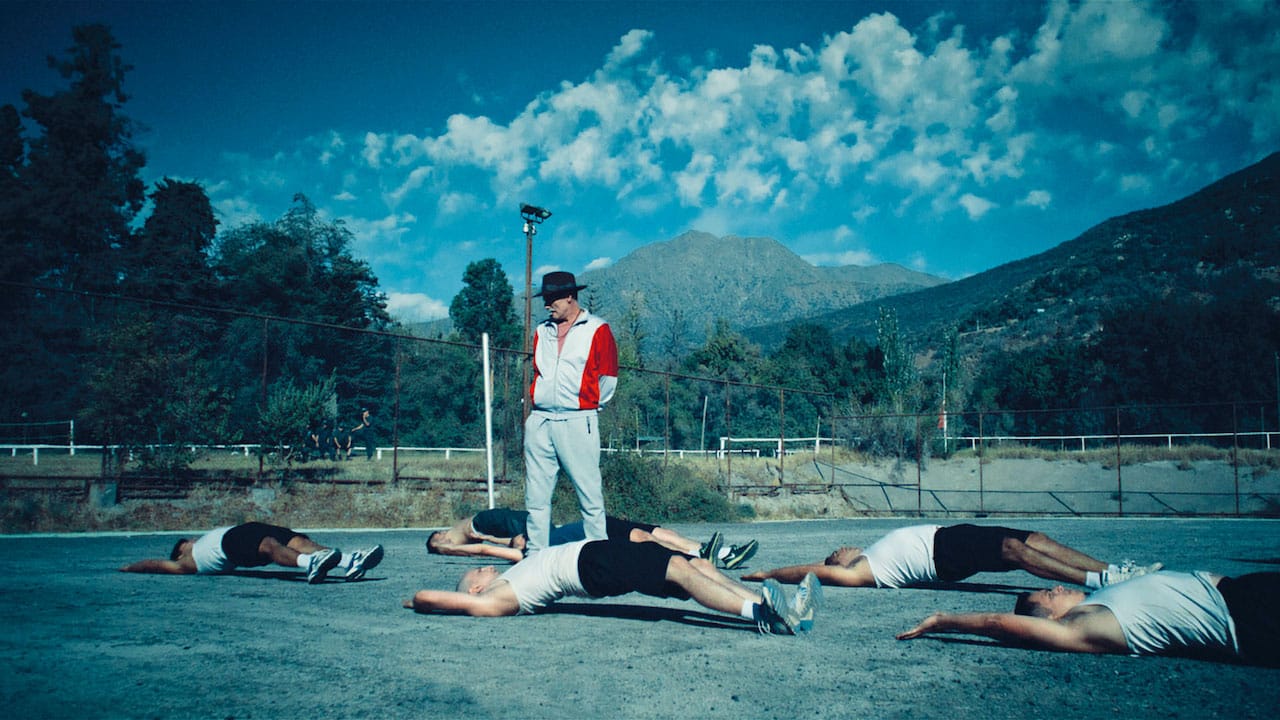



Dir/Wri: Felipe Carmona | Chile, Brazil | 2023 | Spanish | 95′
On 11 September 1973 the Chilean Air Force bombed the Presidential Palace of La Moneda in Santiago de Chile overthrowing the Allende government and ushering in Augusto Pinochet’s brutal regime of torture and mass murder.
With innovative angles on the tragedy a slew of new films – 1976 and El Conde. commemorate the 50th anniversary of Pinochet’s reign of terror that continues to capture the imagination of filmmakers all over the world – from Costa Gavras’ Missing (1982), Marcela Said’s 2001 documentary I Love Pinochet to Pablo Larain’s The Club.
Felipe Carmona reflects on the surviving perpetrators of the regime in his first feature Penal Cordillera (Prison in the Andres). Premiering at this year’s BFI London Film Festival, the film explores the aftermath of evil, based on real events: what happens when instigators are on the receiving end of the cosh they themselves once wielded?
Not surprisingly, the perps are a remorseless bunch of baddies who utterly refuse to accept responsibility for their crimes on humanity in the post-Pinochet era. Prison in the Andes, a slow-burn often gruelling thriller despite its lush locations, centres on five military officers serving out their sentence in a luxury prison in the Andes mountains. Taking his inspiration from Pablo Larrain’s recent vampire reverie El Conde, that won Best Script at Venice Film Festival, Carmona plays fast and loose with his timeline, imagining this period of incarceration will go on for many of years, rather than months’, or even decades. And we certainly feel the weight of time.
The luxurious mountainside setting (in Chile and Brazil) enables Carmona to offer up a rather smouldering scenario, with his DoP Mauro Veloso certainly giving us a cinematic eye-full despite the glowering subject matter: the right-hand henchmen have their own pool and gardens and seem to hold sway over their captors in this false paradise. But a surprise change in circumstances, resulting from a prison interrogation, demonstrates their total lack of remorse. And the ensuing mayhem provides for some florid scenes of violence.
Once again themes of Nazism and the inherent nature of evil creep into Carmona’s rather flawed script although his film certainly makes for a muscular debate: are oppressors intrinsically immoral; or are they just otherwise decent people corrupted by blindly obeying orders? The Chilean filmmaker weighs in with a promising debut that reworks solid, evergreen themes, but his script lets him down in this potent study of evil. MT
BFI LONDON FILM FESTIVAL 2023 | FIRST FEATURE COMPETITION 2023